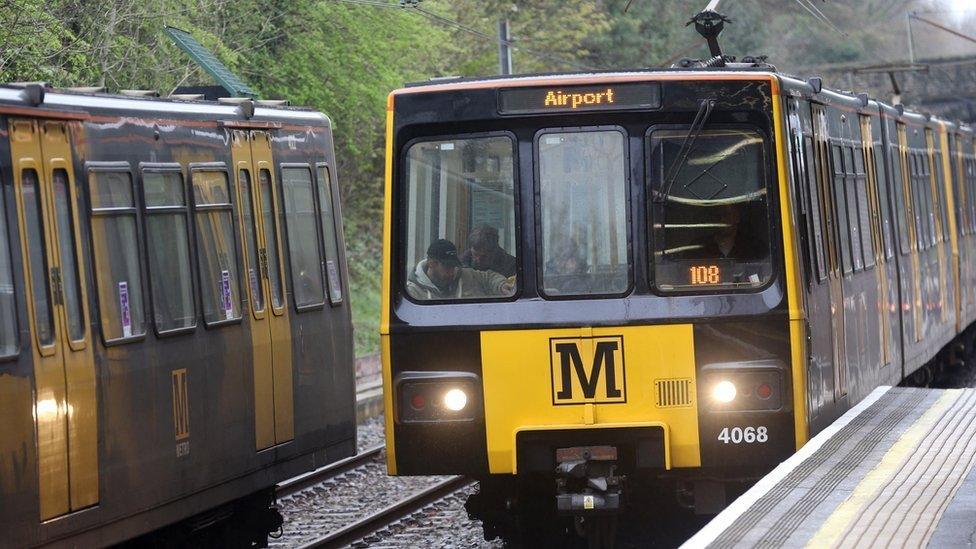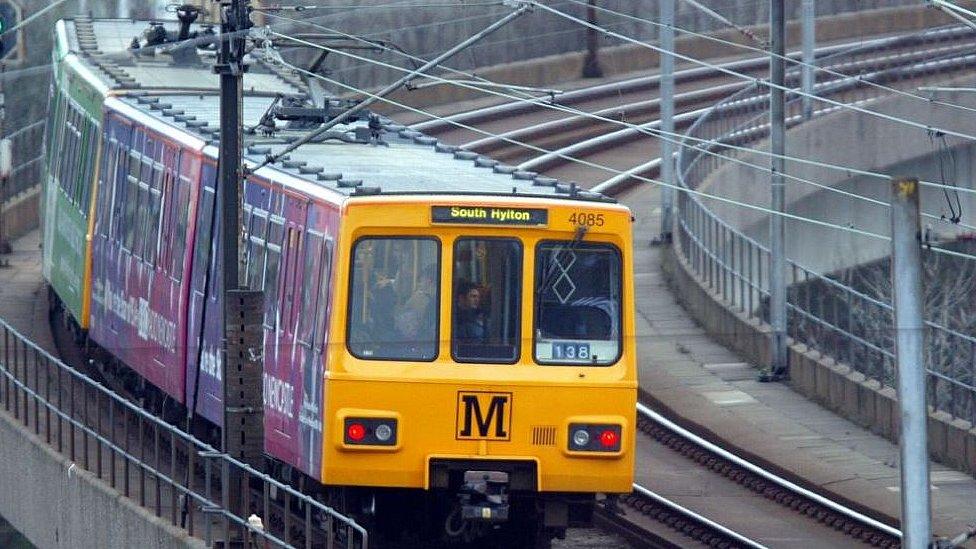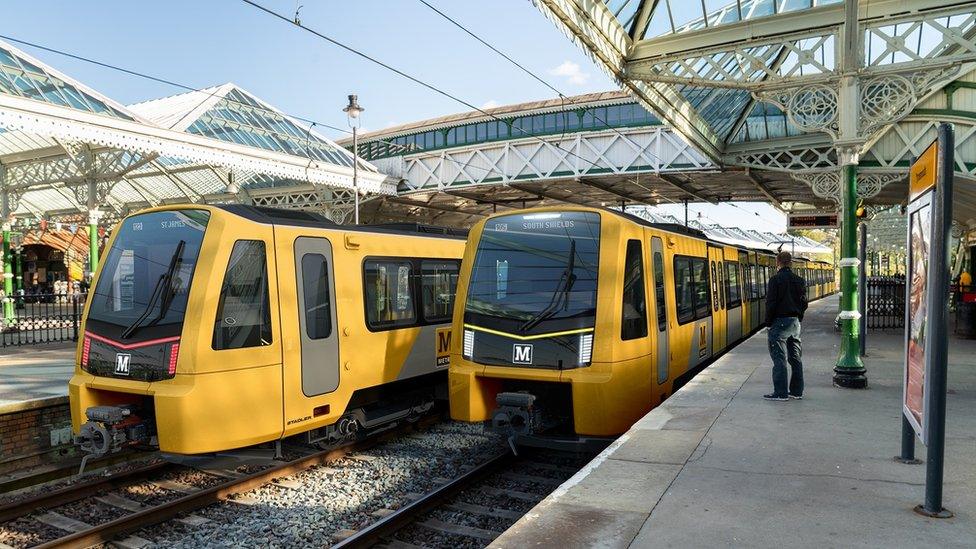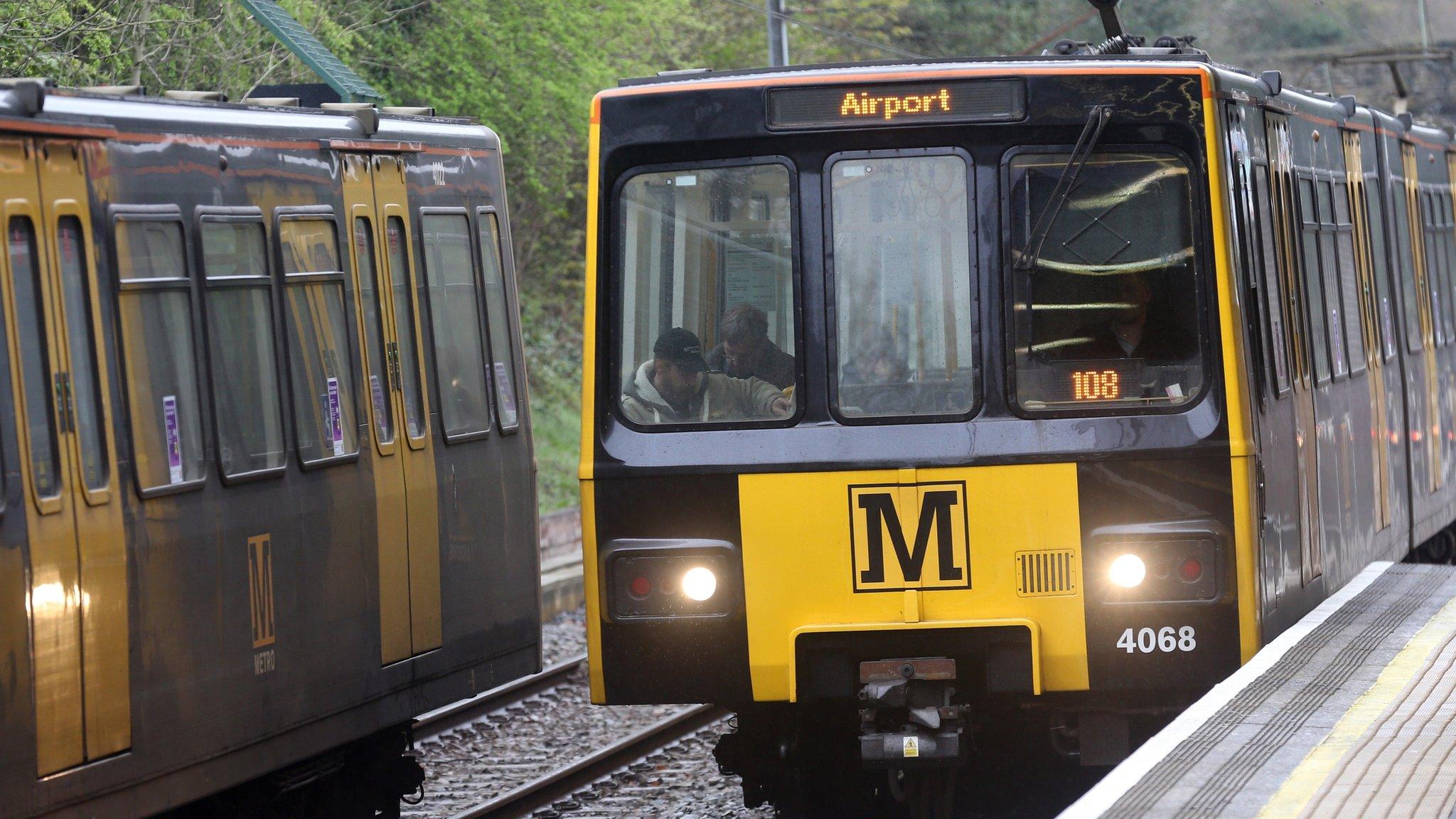Tyne and Wear Metro funding needed as pandemic hits passenger numbers
- Published

At the Metro's lowest point, it saw just 5% of its usual passenger numbers
Transport chiefs say long-term funding is needed to rescue the Tyne and Wear Metro while passenger numbers remain low during the pandemic.
A recovery plan detailing how the network could "bounce back from a cash crisis" was submitted to the Department for Transport (DfT) this week.
But the DfT told Metro operator Nexus to base its plans on an "assumption" normal travel would resume on 1 April.
The service has been given £39m of government funding during the pandemic.
At the height of the first national coronavirus lockdown, the Metro was losing almost £1m every week as passenger numbers plummeted by up to 95%.
'Bleak reality'
Newcastle Lib Dem councillor Greg Stone said the 1 April target was "dangerously unrealistic" and an "urgent plan" was needed to avoid major cuts to vital public transport services in 2022, the Local Democracy Reporting Service said.
"The bleak reality is that the government cannot guarantee bailouts will continue forever, and Metro cannot count on an upsurge in passengers and fare income," he added.
Nexus chief operating officer, Martin Kearney, warned that passenger numbers cannot climb above 50% until social distancing is removed - a situation that could result in a £500,000 weekly deficit.
A spokesperson said: "The first lockdown saw passenger numbers fall to 5%. In the current lockdown it has fallen to 16%.
"If there is a drop off back to the levels of March 2020 then we might need to seek further support. Talks remain ongoing with government."
The DfT said it set "central assumptions" for recovery plans that were "indicative only and intended to achieve a level of consistency across operators' plans", adding that any future requests for Covid funding "will be assessed in due course".
A spokesperson said: "We have been providing emergency funding to support light rail systems including the Tyne & Wear Metro throughout the pandemic, and will continue to work with operators during this difficult time."

Follow BBC North East & Cumbria on Twitter, external, Facebook, external and Instagram, external. Send your story ideas to northeastandcumbria@bbc.co.uk, external.
- Published27 October 2020

- Published8 August 2020

- Published16 September 2020

- Published19 March 2020
